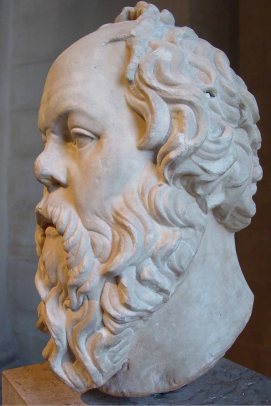In “Whom Does Philosophy Speak For,” Seyla Benhabib and George Yancy consider that sometimes philosophy speaks for and about everyone and yet at other times seems not to. Unfortunately, “a dynamic of freedom for some and domination for others is present in much of Western philosophy.” This has a significant bearing on our understanding of democracy. Benhabib says, “Western philosophy, as distinguished from myth, literature, drama and many other forms of human expression, speaks in the name of the universal. Philosophy emerges when Socrates and Plato show how we have to free ourselves from the ‘idols of the city,’ and when the pre-Socratics ask about what constitutes matter and the universe, rejecting the answers provided by the Greek polytheistic myths.” And yet she also agrees when Yancy points out “that within the Western philosophical tradition, the mind, coded as white and male, is privileged over the body, coded as female or a signification of blackness, creating a false, disembodied practice.”
